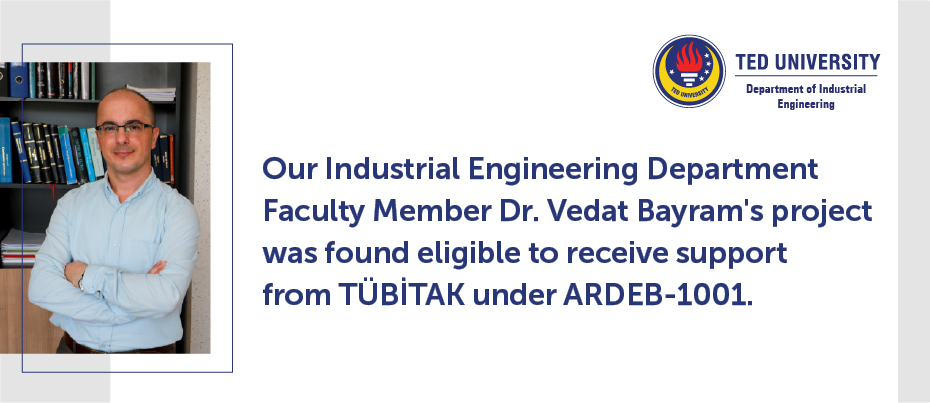Our Industrial Engineering Department Faculty Member Dr. Vedat Bayram’s project was found eligible to receive support from TÜBİTAK under ARDEB-1001

Our Industrial Engineering Department Faculty Member Dr. Vedat Bayram's project titled “Evacuation Planning and Management for Istanbul City Marmara Sea Shores against Tsunami Threat” was found eligible to receive support for 36 months under the TÜBİTAK ARDEB-1001 “Earthquake Research Special Call”.
The project is about optimization of the activities that need to be carried out and the decisions to be made for a safe evacuation planning and management of Marmara Sea districts against the possible threat of a tsunami as a secondary disaster after the impending Istanbul earthquake. In this project, optimization models and methodologies on pedestrian/vehicular/mixed evacuation planning/management for a safe vertical and horizontal evacuation of population under tsunami threat will be developed. Decisions to optimize will include vertical shelter location and capacity selection, design of new roads, bridges/overpasses, capacity enhancement of existing roads, evacuation or shelter-in-place/refuge, dynamic resource allocation to critical intersections and routing.
Project will take 36 months and will consist of 4 work packages under the management of the principal investigator Dr. Vedat Bayram, and will include Dr. Ahmet Cevdet Yalçıner, Head of Civil Engineering Department and director of Ocean Engineering Research Center at METU as advisor, and Dr. Barış Yıldız from KOÇ University, Department of Industrial Engineering as researcher. A postdoctoral researcher, a PhD. and four M.S. students will also participate.
A major impact of the project is that it will contribute to Turkish Republic Presidency, Strategy and Budget Department, Eleventh Development Plan on “Livable Cities, Sustainable Environment” and “Disaster Management”. Project will also contribute to Turkish Republic, Ministry of Internal Affairs, Disaster and Emergency Management Agency, National Earthquake Strategy and Action Plan, U.N. Sustainable Development Goals and Sendai Framework for Disaster Risk Reduction. Although, this work is based on developing evacuation planning and management policies against tsunamies, the results can be used for other frequently encountered disasters in our country and possibly newly emerging disasters due to global warming and climate change.